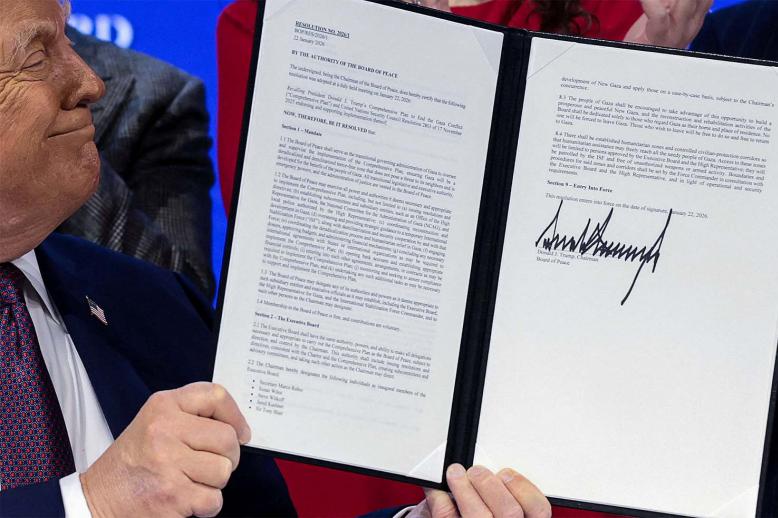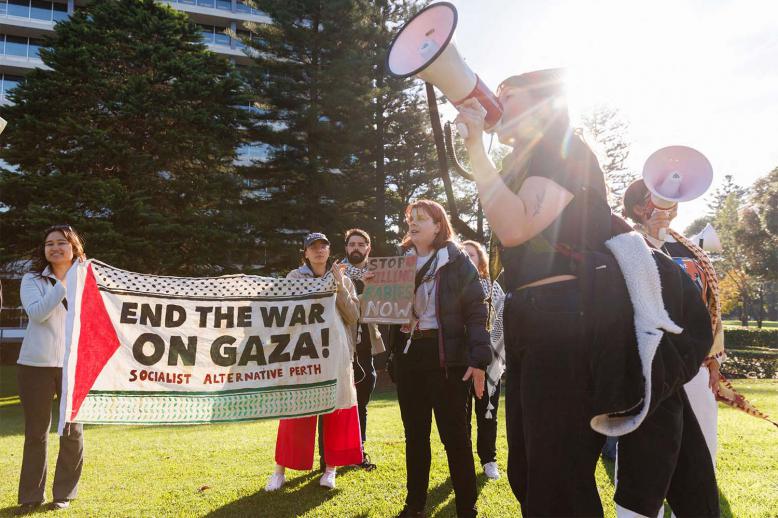Iraq's 60 years of turmoil and destruction
July 14 was the 60th anniversary of the bloody military coup that ended the monarchy in Iraq. Ever since the massacre at the Republican Palace in Baghdad on that day in 1958, Iraq has never had a happy day.
Sixty years of military coups, wars and turmoil have gone by, ruining a country with potential to become the best in the region in all respects. Today’s events in southern Iraq are the culmination of the distress created by that curse.
Thanks to its human and natural resources, Iraq could have been an economic tiger in the region but did not achieve that because of the wave of Arab nationalism started by former Egyptian President Gamal Abdel Nasser. Instead of development, the Iraqis were fed hollow slogans regarding liberating the Palestinians and other issues.
In 1958, the military took over in Iraq. If that wasn’t bad enough already, Saddam Hussein and his regime plunged the country into endless wars, then the US occupation offered it to Iranian hegemony.
So, following decades of misery, what else can be expected besides the scenes of angry protests in Basra, Najaf, Nasiriya and many other southern Iraq cities? What else could years of rule by ignorant military and Ba'ath Party members lead to? Could any good possibly come out of the corrupt governments driven by sectarian instincts and their Iran-controlled militias?
The electricity crisis in Basra is one of the many tragedies in Iraq. They all lead to one simple question: Where have the oil revenues gone since 2003? It is mind-boggling. Huge sums of money are claimed to have been spent and yet Basra has no electricity!
The people of Iraq have had it with corruption and incompetence. The country is broke and is going downhill. This is a country where a multitude of sectarian political parties have no political or economic programmes to offer to its unemployed youth. Iraq has become a country where universities were turned into religious centres and forgot about producing doctors, engineers and other scientists capable of taking advantage of today’s technological revolution.
Today’s Iraq cannot compare to Iraq of 60 years ago. Undoubtedly, the monarchy in Iraq was not the ideal regime but at least it was open to improvements. The Hashemite ruling family operated with values that did not include using violence. They showed tolerance and openness towards other civilisations and did not believe in eliminating their opponents. Above all, they appointed the best Iraqis to positions of responsibility regardless of their ethnic or religious backgrounds.
Look at Iraq today. Is it possible to accept that a clergyman with no political education whatsoever is entrusted with leading the country and organising political life in it?
Iraq is going through a critically dangerous phase for two reasons. The first has to do with the Kurds’ failure to win their autonomy. That disaster of last September’s independence vote killed any hope for a pluralistic Iraq.
The second relates to the scenario in which Iran uses Iraq’s oil production to play with the world’s oil supply. The likelihood of this would explain the Iraqi government’s allegations about the existence of “planted agents” working on deteriorating the political climate.
Could the government be referring to Iranian agents? Very possible given that Iran is experiencing a tense period because of potential US sanctions, which will certainly affect its oil exports.
We cannot rule out the hypothesis that Iran, a country that threatened to close the Strait of Hormuz if it was prevented from exporting its oil, wanted to send a message to the Trump-Putin summit in Helsinki. Perhaps Iran wanted to say that if closing the Strait of Hormuz was made impossible, it would not hesitate to use Iraq’s oil exports to mess up oil prices internationally.
Regardless of whether the protests in southern Iraq are manipulated, and regardless of whether they’ll reach Baghdad, one unfortunate fact cannot be denied. For the past 60 years, Iraq has been undergoing the same process of systematic looting and destruction. It began with the barbarians who assassinated the entire Iraqi royal family and who, ironically enough, spoke of a blessed “revolution.”
The systematic destruction of Iraq is not over. Despite the feeling among Iraqis, including the Shia sects, that Iran’s hegemony in Iraq has run its course, the situation does not look hopeful for Iraq. Iraqis run the risk of seeing Iran use Iraq’s oil for its own sombre designs. Iran seems still thirsty for more Iraqi blood.
What a pity, because 60 years ago, there was a fighting chance to see a totally different political entity develop in the region.
Khairallah Khairallah is a Lebanese writer.
Copyright ©2018 The Arab Weekly







